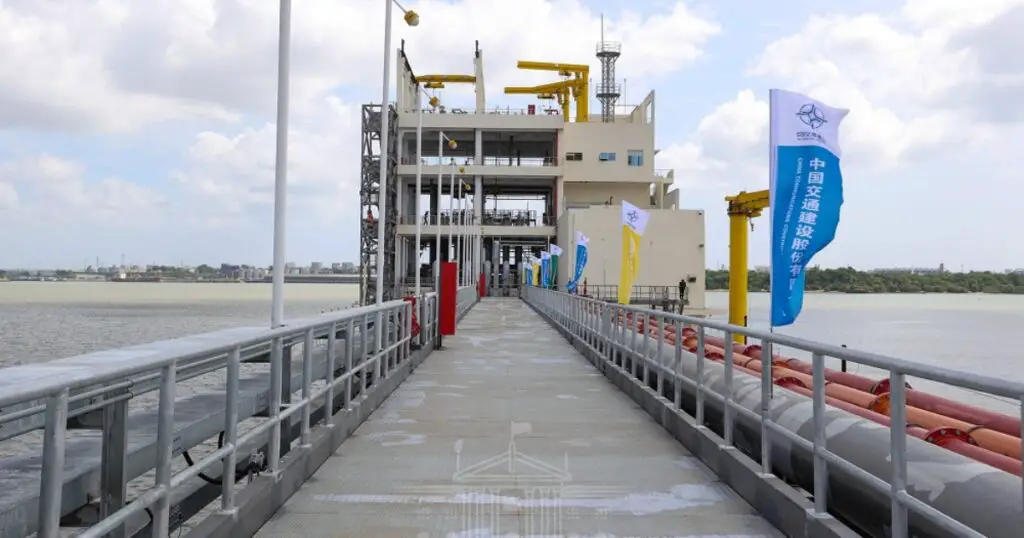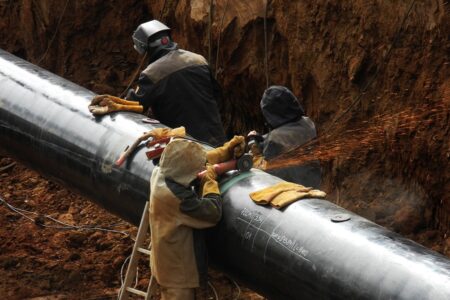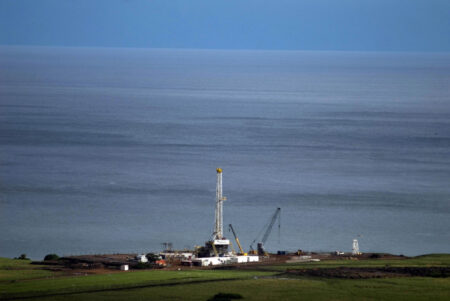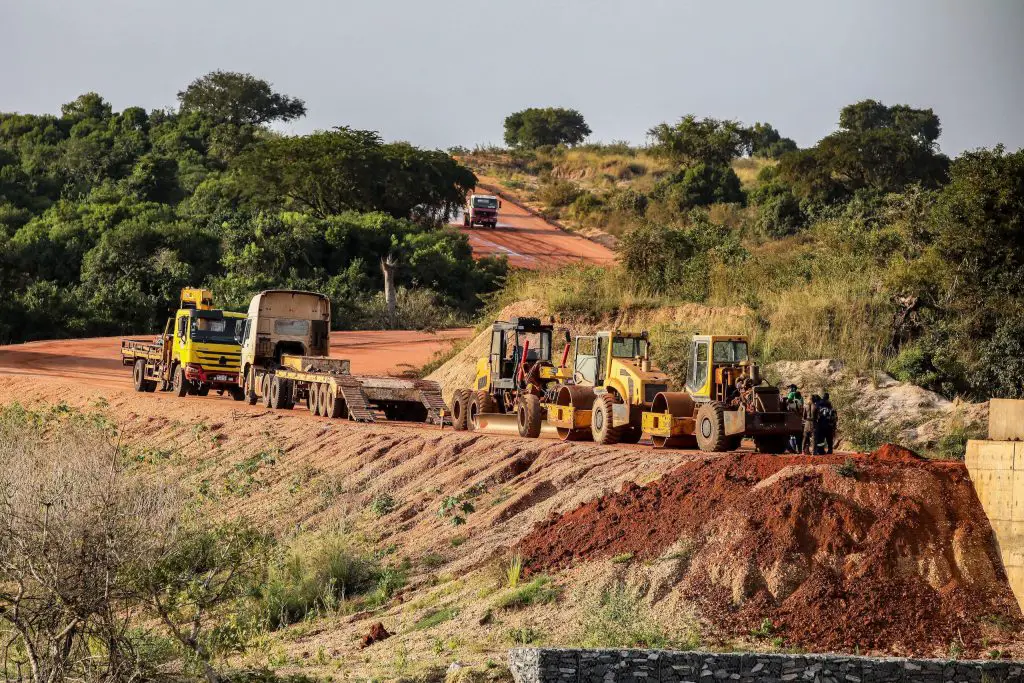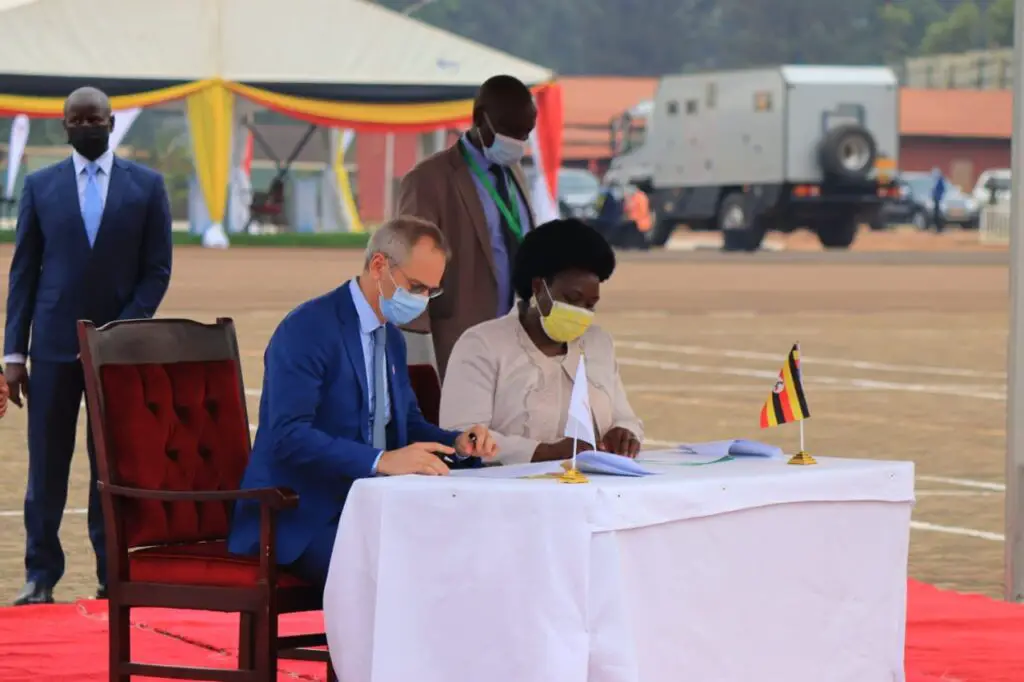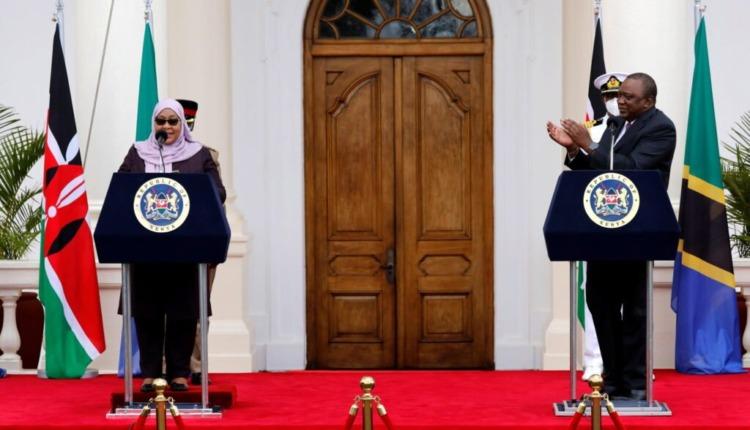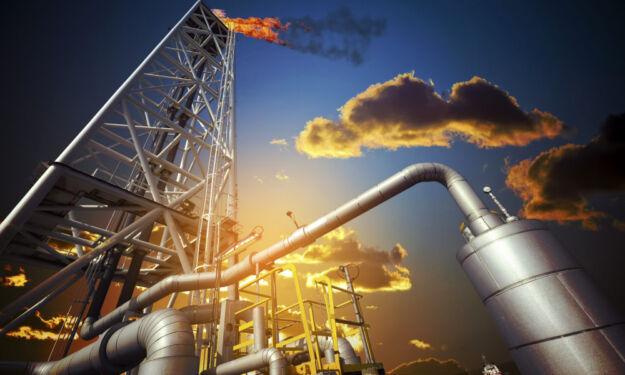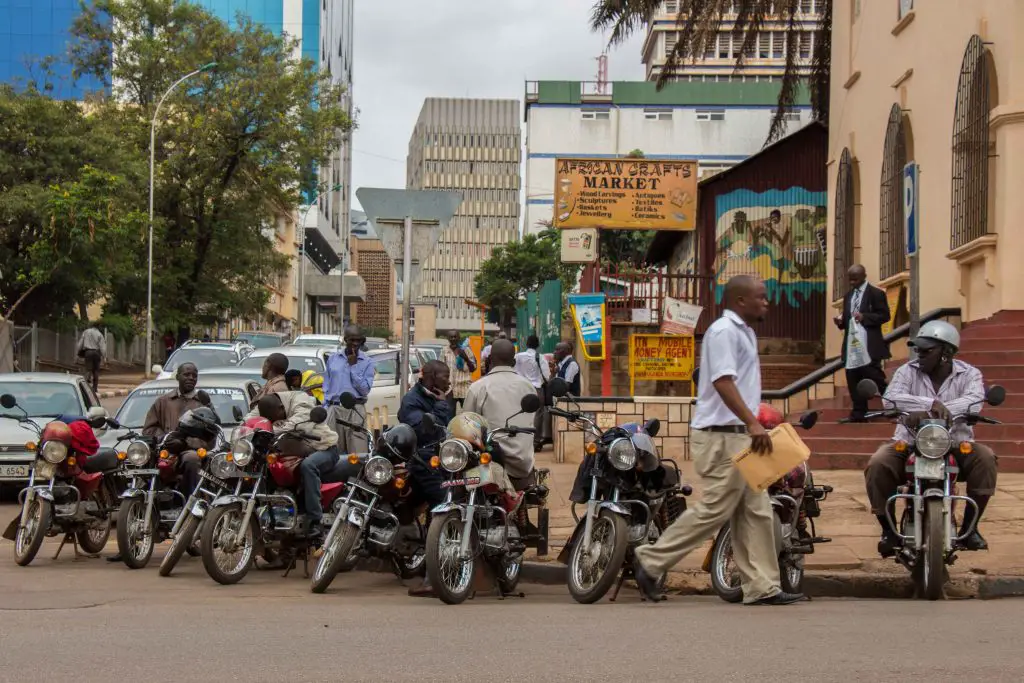- Africa’s new dawn: the rising role of digital and AI in agriculture
- Can Dangote Refinery Transform Africa Energy Ambition
- Gallup Survey: 80 per cent of Kenyan Workers Are Disengaged and Seek New Opportunities
- Madagascar Man Freed from 5KG Tumor After 15-Year Struggle
- How women in Africa are perceived and treated
- Sugar consumption in Kenya to Increase to 1.23 Million Tonnes
- Can Somalia and Turkey Oil deal Bring Change in Somaliland
- Remittances to Kenya dropped to $371.6 million in June, marking a six month low
Browsing: CNOOC
- Uganda has moved to the East African Court of Justice (EACJ) over alleged Kenya’s move to block it from importing its refined petroleum products.
- In 2016, Uganda opted to work with Tanzania to develop a pipeline to evacuate crude oil from its fields in Hoima, western Uganda.
- This dealt a blow to an initial plan to jointly construct a 1,500-kilometre-long pipeline from oil-rich Hoima to Kenya’s Lamu port, a project envisioned to cost about $2.5 billion.
Kenya’s fallout with Uganda on importing refined petroleum products has caused another rift between the neighbouring countries, threatening trade and bilateral relations.
On December 28, last year, Kampala lodged a case at the East African Court of Justice (EACJ) against Nairobi for blocking its plans to shift from purchasing petroleum products from Kenya to importing consignments.
Over the year, Oil Marketing Companies (OMCs) in Uganda have picked imports from Kenya Pipeline’s depots in Eldoret …
- One of Africa’s biggest pipeline is the 4,100Km Trans-Sahara Gas Pipeline connecting Nigeria and Algeria oil fields.
- At 1,443Km East African Crude Oil Pipeline will connect Uganda’s oil fields to Tanzania’s coast.
- Cutting across seven countries, the Central African Pipeline System will include refineries, gas-to-power plants, and LNG terminals.
As oil and gas industries continue to grow in Africa, the construction of regional, intra-African pipelines has a huge part to play in distributing these hydrocarbons across the continent, allowing Africa to reap the benefits of its energy resources.
These benefits included improved access, availability, and affordability of energy as well as energy security. It also contributes to added revenue to the participating countries and the skills development of local companies and individuals.
Africa, a continent teeming with untapped energy potential, has long been grappling with the challenge of delivering its vast oil and gas resources to its energy-hungry populations.
With …
- Locals around Lake Albert alarmed by oil companies neglecting the essential rituals needed to preserve these places’ sanctity.
- TotalEnergies is encountering legal challenges and criticism for its environmental impact, including contributions to climate change.
- A key part of this effort is the $3.5 billion East African Crude Oil Pipeline. While it could bring economic gains and regional energy integration, it has climate and environmental concerns.
In a region where oil activities are expanding into sacred natural sites, a small Ugandan community is grappling with the encroachment on their spiritual spaces. According to AP, Alex Wakitinti, the chief custodian of these revered sites near Lake Albert, is concerned about the disregard shown by oil companies, including French giant TotalEnergies, for the significance of these locations. These sites are vital to the cultural and spiritual practices of the Bagungu community in the remote Buliisa district, adjacent to the Congo border.
Wakitinti …
- The EACOP is one of the biggest oil project in Uganda
- The total investment has reached $10 billion
- Uganda will pay Tanzania $ 12.20 per barrel transported through the pipe
The East African Crude Oil Pipeline project has again reached another height as the two partnering nations, Tanzania and Uganda, have signed a Memorandum of Understanding on cooperation in defence and security for the ambitious and controversial EACOP project.
The signing was penned on Friday last week at the climax of a three-day Inter-governmental Security Committee Meeting held in Kampala, Uganda.
The MoU was signed on behalf of the two nations by Uganda’s Minister of Defence and Veteran Affairs Vincent Bamulangaki Ssempijja and his Tanzanian counterpart, Minister of Defence and National Service Dr Stergomena Tax.
According to the Ugandan minister, the MoU was an important matter to be concluded, as highlighted by the two partner nations, President Samia Suluhu Hassan…
TotalEnergies CEO Patrick Pouyanne said that the memorandum of understanding will see the French firm produce Liquefied Petroleum Gas (LPG) and also deploy large-scale renewable energy technologies to identify areas of commercial investment.
Uganda’s Minister of Energy and Mineral Development, Ruth Nankabirwa said in a speech ahead of the signing that the agreement would put the country on the path to first oil in 2025. She added that EACOP would create approximately 160,000 jobs during the project’s development.
The agreement dictates TotalEnergies will develop solar, wind, geothermal, and other renewable technology power projects in Uganda to add a combined installed electricity output capacity of 1 Gigawatt by 2030 to the current 1.2-Gigawatt production.…
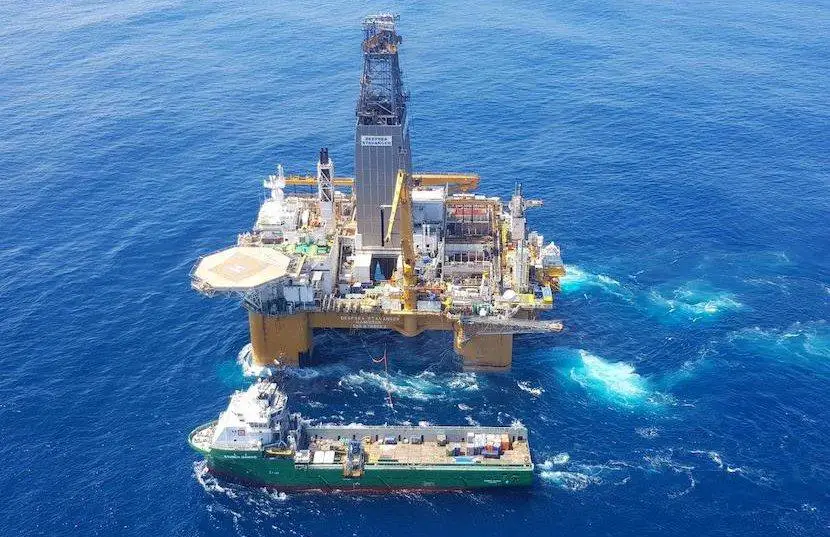
Within her first two months in the executive office. With Uganda, President Samia Suluhu Hassan and counterpart Yoweri Museveni inked an oil deal with Total and China’s CNOOC to start the construction of a $3.5 billion pipeline to export Ugandan crude oil to international markets.
Right after that, President Samia went on to Kenya where together with her Kenyan counterpart President Uhuru Kenyatta, she signed a pact to start working on a gas pipeline from Dar es Salaam to Mombasa.
In their subsequent speeches, the two leaders said the gas deal is part of a long-term project to share energy resources. Rebuilding wary diplomatic ties, Tanzania’s President Samia made it clear that the two countries will build more interconnecting infrastructure including roads and rail and that the gas pipeline was but a starting point.
“The Memorandum of Understanding (MoU) on Cooperation in Natural Gas Transportation means the countries’ ministers …
East Africa (Tanzania and Uganda in this case) is endowed with plenty of natural resources that mark it as a potential region for investment and economical prosperity. The East Africa Crude Oil Pipeline (EACOP) is another milestone that will levitate Tanzania to a good position economically.
The crude oil project which was stalled since 2019, has taken a new leap that sounds promising to the two countries which are eyeing maximizing the potential of $15 billion in investment (The East African 2021).
Earlier this week, the project was signed off by Uganda President Yoweri Museveni in the nation’s capital, Kampala and Tanzanian President Samia Suluhu. The process was postponed from the original date of March 22 after the sudden death of President John Magufuli.
The EACOP project landscape
This historic project plans to transfer crude oil via a 1,445 long pipeline extending from western Uganda to the Indian ocean in …
 For those investing and particularly interested in Africa, Guinea-Bissau is a country which, so far, has been “under the radar” for most of the investors.
For those investing and particularly interested in Africa, Guinea-Bissau is a country which, so far, has been “under the radar” for most of the investors.
Located in West Africa, bordering with Senegal and Guinea Conakry, Guinea-Bissau is a relatively small country, with 36.125 sq. Km. Around 25% of the total population (estimated in 2.072.000, by figures of April 2020) is based in the capital (Bissau).
The official language is Portuguese, with some other native languages been used (like Balanka, Fula and Mandinka). French is also spoken, due to the influence of the two neighboring countries. Most of the population is Muslim (45%), with 22,1% of Christians and the outstanding percentage spread by indigenous traditional popular religions. Guinea-Bissau is also characterized by a very high level of young population (the medium average age is only 18 years).
Politics in Guinea-Bissau
The political regime is a constitutional democracy, with …
The International Monetary Fund (IMF) has taken a key interest in Uganda’s economy, whereas the East African economy is likely to grow by 6 per cent in the financial year 2019/2020 (July-June), which is slump from the previous projection of 6.3 per cent.
According to Reuters, the IMF noted the delays to be attributed by the delays in the public investment necessary for kicking off oil production.
On May 9, 2019, IMF statement noted that Uganda’s economy continued on its robust recovery with projected growth of 6.3 per cent in the fiscal 2018/2019, unequivocally highlighting the timely implementation of public infrastructure and oil-related projects would support growth in the medium term.
The Washington DC-based fund said in a statement published on Wednesday that, “Downside risks have increased linked to uncertainty related to oil production,”.
Also, the statement noted that “the electoral period and the complex external context” also weighed on …





